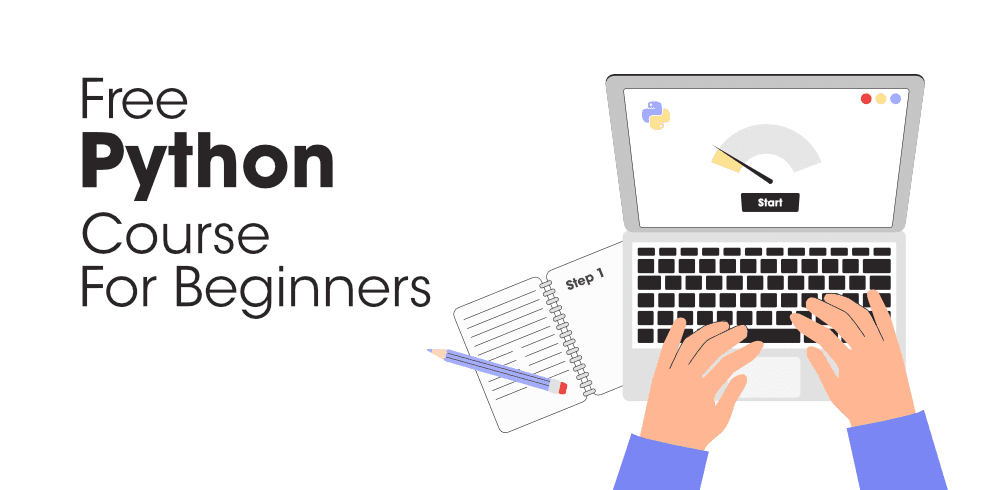
Ultimate Beginners Roadmap for Python Programming
Course Duration:
The course has been divided into 12 sessions (twice a week, 2 hours a session) and it will long for 6 weeks approximately.
Purpose of this course:
The purpose of a Python programming fundamentals course is to teach the basic concepts and syntax of the Python programming language. Python is a popular high-level programming language that is widely used in various fields, including web development, data science, machine learning, and scientific computing.
The course typically covers:
- Introduction to programming and Python
- Variables, data types, and operators
- Control flow statements (if/else, loops)
- Functions and modules
- Data structures (lists, tuples, dictionaries)
By the end of the course, students should have a good understanding of the fundamentals of Python programming and be able to write basic programs to solve problems and automate tasks.
This foundational knowledge can be built upon for more advanced topics in Python, such as web development frameworks, data analysis libraries, and machine learning algorithms.
Who Should Attend?
A Python programming fundamentals course is designed for anyone who is interested in learning how to program with Python, regardless of their background or prior experience. Some specific groups of people who may benefit from attending the course include:
- Beginners with no prior programming experience who want to learn a programming language that is easy to learn and use.
- Students and professionals in fields such as data science, machine learning, scientific computing, web development, and automation who want to expand their skills and knowledge.
- Professionals in other fields who want to learn programming to improve their productivity and automate routine tasks.
- Entrepreneurs and business owners who want to build software applications or data analysis tools for their businesses.
- Hobbyists who are interested in learning how to program and develop their own projects.
Learning Outcomes:
Upon completing a Python programming fundamentals course, students should have achieved the following learning outcomes:
- Understand the basic concepts and syntax of the Python programming language.
- Be able to write basic programs using Python, including variables, control flow statements, functions, and modules.
- Be able to use Python’s built-in data structures, including lists, tuples, and dictionaries.
- Understand how to handle errors and debug Python programs.
- Be able to read and write files in Python.
- Have a solid foundation in Python programming that can be built upon for more advanced topics in Python, such as web development frameworks, data analysis libraries, and machine learning algorithms.
Overall, the learning outcomes of a Python programming fundamentals course should equip students with the foundational knowledge and skills to write basic programs in Python and explore more advanced topics in the language.
Instructor’s Profile:
This course will be instructed under the supervision of Mr. Uzair Shahzad (Software Engineer).
He had completed his Bachelors of Software Engineering in 2020 from NCBA&E and since the completion of his degree program he has worked for 2 years as C++ gaming software engineer at Gaminations.
Later on, realizing the importance of Artificial Intelligence, he turned his career pursuance towards Python programming language and now working as a Python software engineer at Parakeet Systems (Pvt) Ltd since 2022.
Alongside the industrial experience of more than 3 years, Mr. Uzair Shahzad also has the teaching experience of more than 5 years which makes him a perfect blend for this particular
Course Outline:
Lecture 1:
- Introduction and getting started with Python
- Python syntax
- Python Comments.
Lecture 2:
- Python Variables
- Python Data Types
- Python Numbers
- Python Casting
Lecture 3:
- Python Strings
- Python Booleans
- Python Operators
Lecture 4:
- Python Lists
- Python Tuples
- Python Sets
- Python Dictionaries
Lecture 5:
- Revision of Topics covered
- Introduction to control structures
Lecture 6:
- Selection structure (if, if else, if else if, nested if etc.)
Lecture 7:
- More practices with selection Structure.
Lecture 8:
- Loop Structure (for loop, while loop etc.)
Lecture 9:
- More practices with loops including nested loop
Lecture 10:
- Python functions and it’s types
Lecture 11:
- More practices with functions
Lecture 12:
- Revisions and Project Evaluation
For more information call us at: +92316-0600929 Or visit our campus: 368 Block E Phase 1 Johar Town Lahore.
